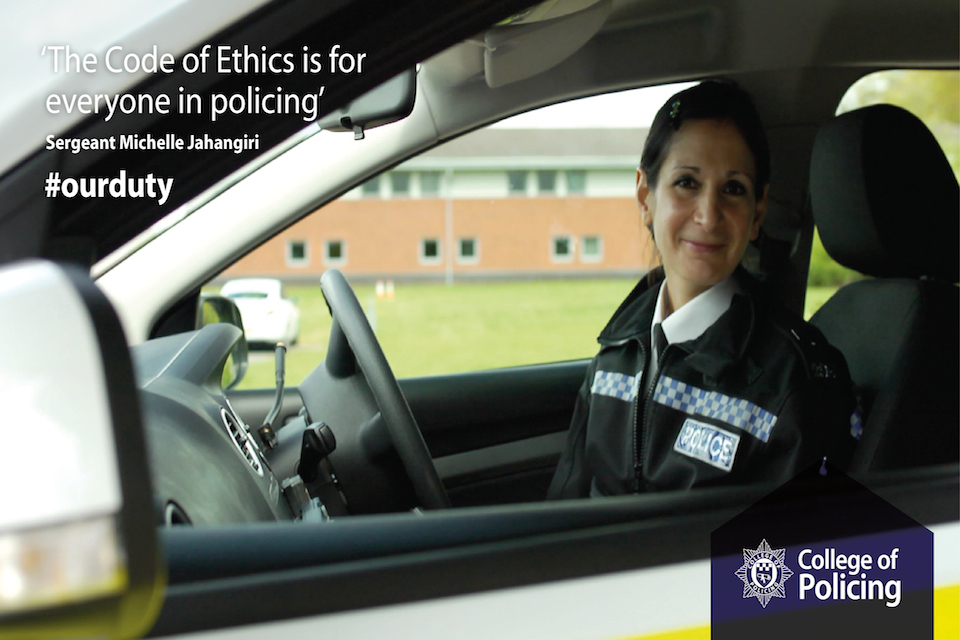Code of Ethics launched
The College of Policing has written a new Code of Ethics for all police forces across the UK.

Members of the public have said they would not want to be in the position of police when faced with some of the decisions they have to make, a survey by the College of Policing has revealed.
To mark the official launch of the Code, the College asked 2,043 members of the public how they might deal with some of the ethical dilemmas faced each day by those in policing.
More than two-thirds of respondents (68%) said they wouldn’t want to be in the position of a police officer or staff member when making those decisions and 40% of those surveyed felt the challenges facing the police when making decisions were harder than they previously thought.
It also revealed there was not always a clear consensus among respondents on the best thing to do in the scenarios and most respondents did not always find it easy to decide what to do.
The Code of Ethics will apply to more than 220,000 officers, police staff, contractors and volunteers working in policing.
It sets out the standards of behaviour that the public can expect from officers and staff at every role and at every level and will help guide decision making.

The Code comes after the College of Policing was granted new powers under the Anti-Social Behaviour, Crime and Policing Act 2014 to set codes of practice for police.
College of Policing board chair Professor Dame Shirley Pearce said:
The code of ethics makes explicit the ethical principles that should guide the difficult decisions that everyone in policing has to make every day of the week.
College of Policing chief executive Chief Constable Alex Marshall said:
The vast majority of people who work in policing are hardworking, honest people who want to serve their communities. The Code of Ethics clearly defines the expectations of standards and behaviour for everyone in policing and brings policing into line with other trusted professions that have such codes, like those in medicine and law.
Police forces across England and Wales are today supporting the launch of the Code of Ethics on social media using #ourduty.
The College of Policing has also launched an online video of frontline officers and police staff talking about the importance of the Code of Ethics and what it means to them.
College of Policing: Code of Ethics
The main components of the Code are 9 policing principles and 10 standards of professional behaviour.
| policing principles | standards of professional behaviour |
|---|---|
| accountability | honesty and integrity |
| fairness | authority, respect and courtesy |
| honesty | equality and diversity |
| integrity | use of force |
| leadership | orders and instructions |
| objectivity | duties and responsibilities |
| openness | confidentiality |
| respect | fitness for work |
| selflessness | conduct |
| challenging and reporting improper conduct |
The nine policing principles originate from the ‘Principles of Public Life’ published by the Committee on Standards in Public Life in 1995, as these continue to reflect public expectations.
The ten standards of professional behaviour originate from the Police (Conduct) Regulations 2012 and from the Police Staff Council Joint Circular 54. In the Code the wording of the standards has been adapted so that it applies to everyone. Where something applies solely to police officers, this is made clear.
The work was carried out by the College of Policing, in association with the national policing lead for Ethics, the national policing lead for Professional Standards, and a range of key stakeholders.
For more information visit the College of Policing website